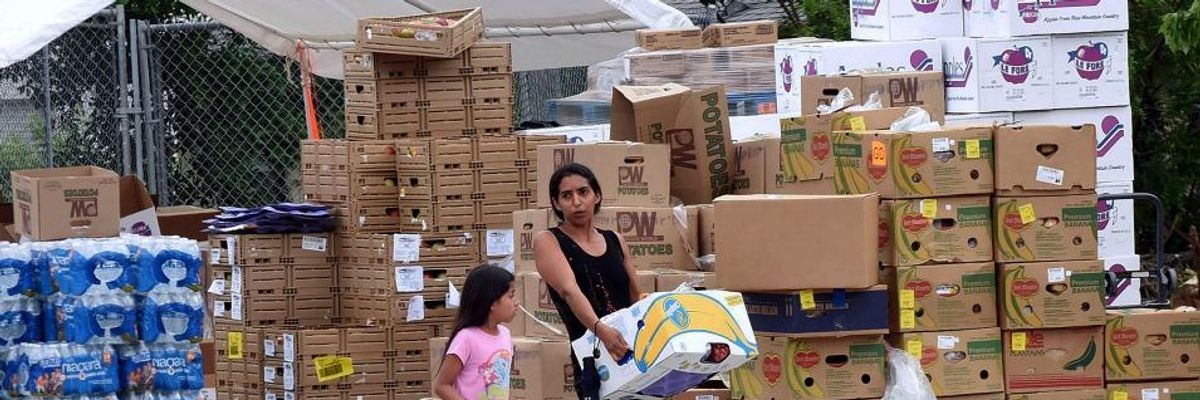A poll released by the U.S. Census Bureau this week revealed that at least nine million American households that include children are unsure whether they'll be able to access enough food in the next four weeks and millions more are experiencing housing insecurity during the coronavirus pandemic.
The bureau's weekly Household Pulse Survey, taken between May 14 and 19, asked respondents about their loss of employment, food security, overall health, and other issues they are facing during the pandemic.
According to the data, more than nine million households are "not at all confident" that they will be able to afford food in the next month, and more than 18 million are only "somewhat confident" about their food security.
The Census also asked respondents whether they had experienced food insecurity prior to March 13, when President Donald Trump declared the pandemic a national emergency and schools across the country shut down.
Just over two million people had "often" not had enough to eat before the pandemic forced state and local economies to shut down, which was followed by little economic relief for families from the federal government.
Since the coronavirus outbreak began spreading across the country in March, food banks have reported skyrocketing numbers of Americans relying on their services, including many who had never before needed assistance accessing food. With 74% of U.S. families living paycheck-to-paycheck--including one in four households that earn at least $150,000 per year--the pandemic and the federal government's reluctance to offer more than a one-time direct payment of $1,200 to most Americans plunged millions into desperate situations overnight.
As Common Dreams reported Wednesday, the same Household Pulse Survey revealed that a quarter of respondents weren't able to pay their rent or mortgage in May or were concerned they wouldn't be able to pay in June.
Intercept journalist Rachel Cohen pointed out on social media that the widespread economic uncertainty that's grown out of the pandemic is having reverberating effects on Americans' overall wellbeing.
A Census survey taken earlier this month found that a third of Americans are showing signs of clinical anxiety or depression since the pandemic began.
The data released by the Census Bureau in its weekly surveys has intensified calls for government intervention to ensure people are not evicted from their homes if they can't pay their rent due to job loss, to provide Americans with more robust direct payments for the duration of the crisis, and to prioritize making sure people have access to the medical and mental healthcare they need.
"Now that the government knows how widely people are suffering, the question is what are they going to do about it," psychiatrist Maria A. Oquendo told the Washington Post on Wednesday.




